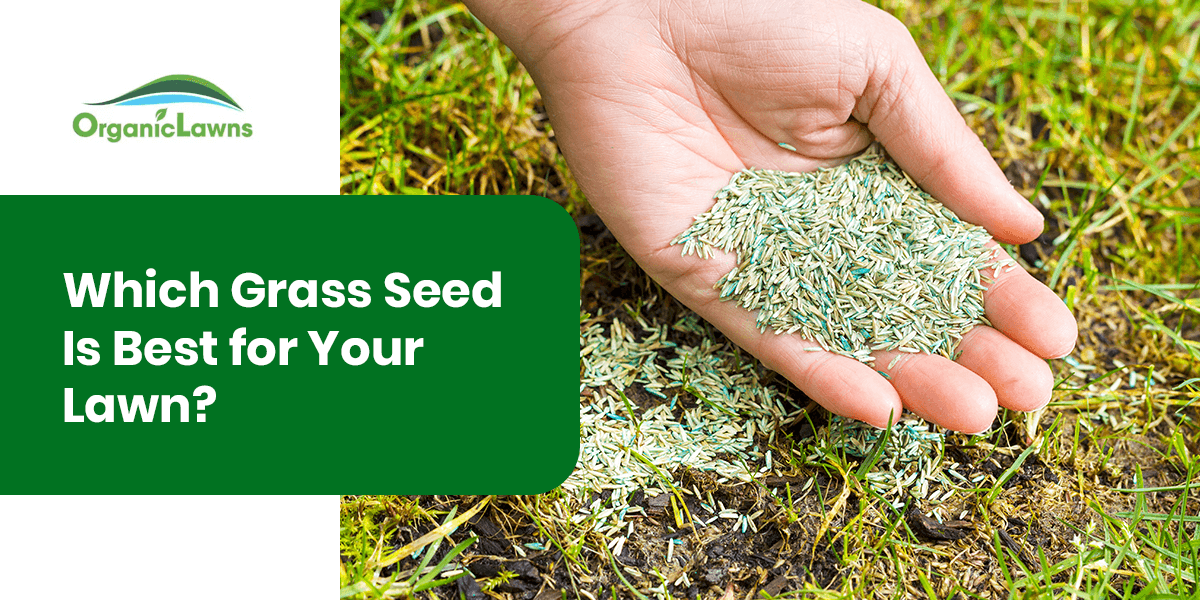

There are so many different grass seed brands on the market, and it can be daunting to pick the best seed for your lawn. Several factors make up the characteristics of grass seed. When shopping for home lawn seed mixtures, you’ll usually find them categorized by sun or shade needs.
Still, other attributes of different grass species can better match your particular needs and the amount of maintenance you are willing to provide. Are you planning to reseed your grass and give your lawn the makeover it deserves? Here are a few things to remember when choosing grass seed.
There are two categories of grass — cool season and warm season. For lawns in the Maryland climate, we recommend cool-season grasses, as these grass varieties have the longest growing seasons. Tall fescue is a hardy grass that resists pests and diseases. Generally, it can tolerate stress better, such as heat, drought or traffic.
Kentucky bluegrass is another excellent choice. This variety of grass is also resilient, meaning bald spots in the lawn can regrow from underground roots over time. Unfortunately, it is susceptible to summer heat and disease.
Various factors will play into your grass seed decision, but the climate is critical. There are three primary grass planting zones that determine which grass seed varieties will thrive in particular climates — the northern, transitional and southern planting zones. Choosing the best grass seed for your planting zone will ensure optimal growth results.
As mentioned before, tall fescue is ideal for drier, more Midwestern states, while Kentucky bluegrass is the hardy and deep-green type found in the Northeast and Pacific Northwest states. Cool-season grasses are lush and deep green, while warm-season grasses tend to have a dense, golf-course-like appearance.
Below, we’ve broken down the different types of cool, transitional and warm-season grasses that exist to guide your decision.
Northern region grass or cool-season grasses are more tolerant of cooler temperatures. Popular cool-season grasses include:
The transition zone refers to the central bar of states stretching horizontally across the United States that don’t fit into the warm or cool grass regions. In this zone, humidity, aridity and warm and cold temperatures constantly mix, creating an unpredictable, challenging situation for grass seed.
Tall fescue is one of the best growing grass seeds in the transition zone. It’s a cool-season grass with a tolerance for heat, making it ideal for the unique climate of these central states.
Some planters also use the warm-season option — Zoysia grass — which has deep roots, low growth and stands up well to the cold. Zoysia grass is a beautiful bright green, but it can be tricky to rear. It’s best to plant zoysia seeds during the warmest times of the year, including late spring or early summer.
Warm-season grasses are great for southern states like Georgia and Alabama, where cold winter temperatures aren’t as prevalent. Popular warm-season grasses include:
What is the best grass seed for new lawns? The answer largely depends on your specific situation. Factors you should consider when selecting the best grass seed include your region’s climate, your yard’s condition and its sun exposure. Here are a few things to remember while choosing the best seed for your lawn:
When you are ready to buy seed bags from your local garden store, there are a couple of things to remember. First, always check the label before you purchase anything. No matter what type of seed you choose, pick out a 75/25 mixture with 25% annual rye — as the annual rye won’t regrow after the first year. Instead, the rye sprouts and grows back stronger. Do not just go for the lowest price or a familiar brand. The label provides valuable information on what is in the grass seed. Examine the seed label to determine the types and cultivars included in the mix. Ensure there are no weed seeds or other crop seeds in your blend.
Don’t hesitate on reseeding your lawn this summer! Check out our aeration and seeding services, and we’ll help you grow the lawn of your dreams.
Since 1996, OrganicLawns has earned a reputation as Maryland’s leading organic lawn care company. Our customers are the only thing we value as much as following ethical and sustainable lawn care practices. Our products are organic and people- and pet-friendly, so your family remains safe while we help you transform your lawn. Consider hiring us to service the lawn of your MD home. You can count on us not only to ensure you have a lush, green yard, but also for the highest standard of customer service.
If you are searching for reliable lawn care services in Maryland, contact OrganicLawns. We offer quality service and products at an unmatched price. Let us help you feel confident in your property. Are you interested in having your lawn treated organically by a family-owned and -operated local business? Contact us for a free lawn estimate, or give us a call at 410-536-5800.